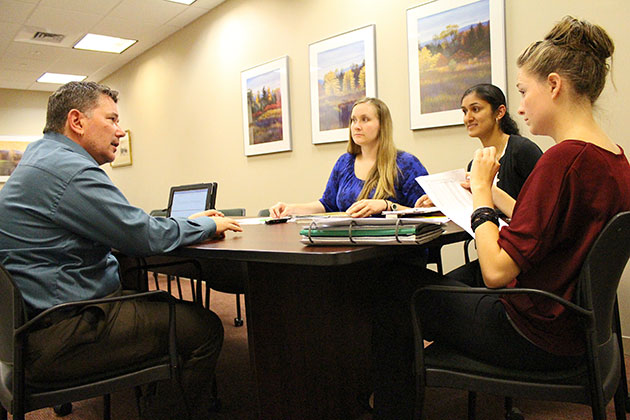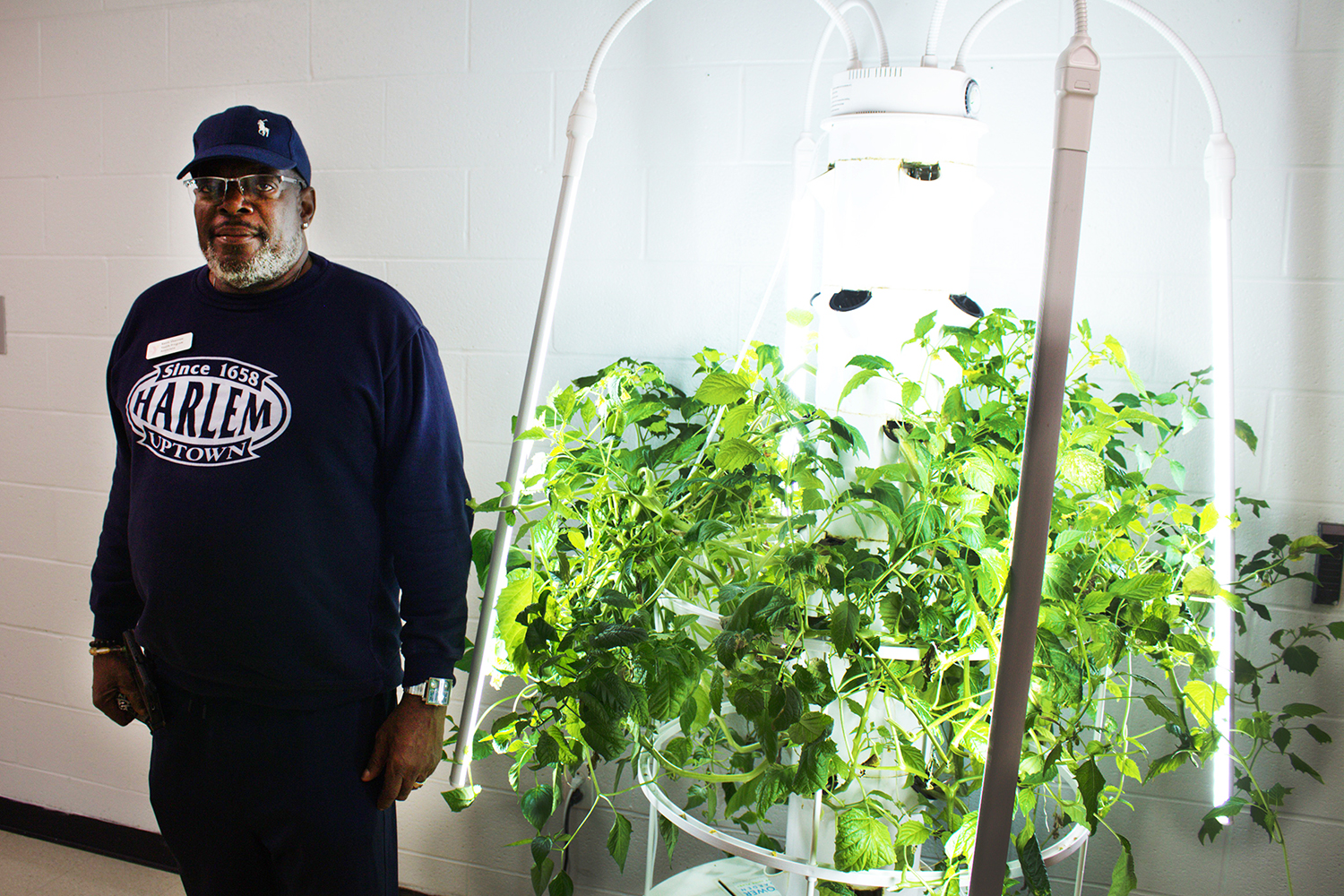
A group of UConn speech-language pathologists is learning about developmental language deficiencies in adult populations by working one-on-one with students in an adult literacy program in Hartford.
Bernard Grela, associate professor and head of the Department of Speech, Language, and Hearing Sciences, who leads the group, says the topic is an under-studied phenomenon.
“Most research in this area focuses on identifying and treating specific language impairments in pre-school and school-age children, but there is very little work being done on adults with reading disabilities,” he says.
Grela and his graduate students are providing the intervention to participants in the Downtown Hartford YMCA’s Read to Succeed program, which provides services for adult learners with normal or above normal intelligence who have difficulty reading, writing, and spelling. It is one of the only programs of its kind in Connecticut, and one of a very few programs in the nation that is specifically tailored to adult students.
For the past year, Grela and his students have assessed adult learners who are having difficulties with aspects of the Read to Succeed program, many of whom have problems with hearing or producing sounds correctly.
The UConn group hopes to develop new therapy strategies that will improve the participants’ literacy skills. The strategies can then be examined through clinical trials using a variety of research-based assessment procedures, and will help UConn researchers get a better understanding of the underlying causes of language and reading disabilities.
Reading for success
Participants in Read to Succeed attend morning or evening classes for two hours a day, four days a week, and most complete the program in about three years. Most importantly, students receive one-on-one instruction specifically designed to improve their literacy skills.
“Some skills are easier for students to master than others, and we can adjust how quickly we move through each section based on each student’s progress,” says program director Karen Theroux.
One of the participants said he looked for programs from New York to Massachusetts, and found nothing quite like the Hartford program. Tim, who preferred his last name not be used, is a three-year participant of Read to Succeed and is now taking part in the UConn intervention program.
The average Read to Succeed student is in their 40s and enters at a 3rd grade reading level, but the program hosts learners with an array of language and reading impairments.
“Everyone here is at different levels,” says Tim. “For me, it’s like getting stripped down and rebuilt – it takes time to learn but you’re forced to adapt.”
While many people have made great strides in the program, Theroux found that some students like Tim were having trouble advancing through the curriculum. These students all display signs of language disorders like dyslexia, and struggle with recognizing the sound structure of spoken words.
“If you don’t have a strong representation of phonemes, or sounds that make up a word, it’s hard to map that on to a grapheme, or the symbols in the alphabet that make up written language,” explains Grela. “As a result, you have a fuzzy representation of speech sounds that follows you for the rest of your life.”
You are what you hear
This fall, master’s students in speech-language pathology Carrie Adams, Minal Kadam, and Sarah Smialek are conducting comprehensive interventions with five participants in the program who were assessed last year.
Each week, the UConn students and Read to Succeed participants work together on individual and group exercises, like using colorful blocks to count and identify the number of sounds in real and made-up words.
The UConn group is tracking the Read to Succeed students’ progress in these activities over the course of the semester to gauge the overall success of the intervention.
“These students are missing some of the building blocks for language, things that you and I might take for granted,” says Kadam. “They’ve figured out ways to work around it, but in this case it has inhibited their reading.”
Grela says that for many participants, working with reading specialists only gets them so far.
“We can teach you to read and decode, but if you don’t understand oral language then you’re not going to be able to comprehend what you read,” he says.
The UConn team will also help Read to Succeed students develop functional language skills, or tools that they can use in their places of employment. For example, some of the students have jobs that require them to fill out reports and other types of paperwork, and need specific help with grammar, spelling, and sequential story telling.
“A few of the students have developed compensation strategies to avoid spelling at work,” says Adams. “For example, they will tell their colleagues jokingly, ‘I’m a terrible speller,’ or type words into their phone to find the correct spelling of a word.”
Beyond the workplace, students receive help with putting together a resume, filling out medical history forms, and writing letters and emails to family members.
Combined with the intervention, the UConn team’s efforts will not only help with the career advancement of current students, but will also enhance the overall effectiveness of Read to Succeed.
“The testing that Grela and his students are doing lets us look more in-depth at a population that doesn’t normally get seen,” says Theroux. “By getting to know these students better diagnostically, we can better help them learn.”


